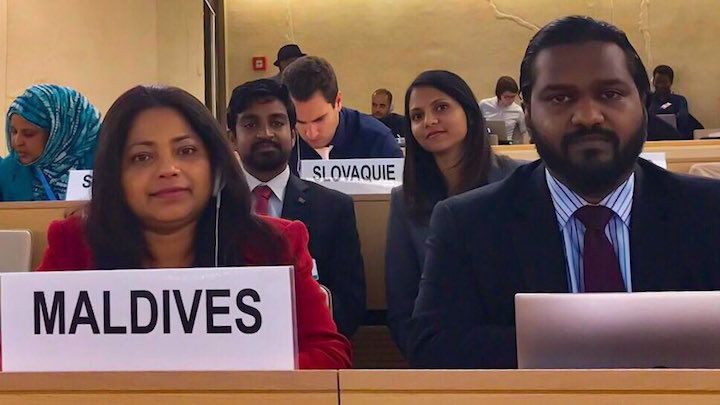Maldives slams UK-led criticism of human rights situation
The Maldives has scornfully dismissed calls by more than 30 countries to restore constitutional freedoms, allow space for political opposition, and prevent the intimidation of human rights defenders.

08 Jun 2017, 09:00
The Maldives has scornfully dismissed calls by more than 30 countries to restore constitutional freedoms, allow space for political opposition, and prevent the intimidation of human rights defenders.
The appeals came at the UN Human Rights Council on Wednesday in a statement delivered by the UK on behalf of more than 30 countries including the United States and Germany.
The Western countries welcomed the government’s avowed commitment to ensure justice for the brutal murder of liberal blogger Yameen Rasheed – whose father was present at the opening of the council’s 35th session in Genea – and called for “steps to prevent the intimidation of human rights defenders including by those promoting violent extremism.”
The statement noted that Yameen had “repeatedly drawn attention to the threats he was facing” and “visited this council to raise awareness of the shrinking space for freedom of expression, as well as the abduction and disappearance of fellow blogger Ahmed Rilwan, whose fate remains unknown.”
Become a member
Get full access to our archive and personalise your experience.
Already a member?
Discussion
No comments yet. Be the first to share your thoughts!
No comments yet. Be the first to join the conversation!
Join the Conversation
Sign in to share your thoughts under an alias and take part in the discussion. Independent journalism thrives on open, respectful debate — your voice matters.




